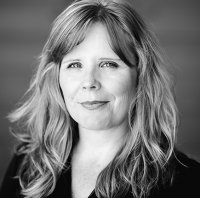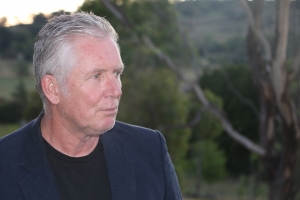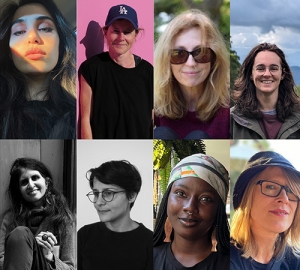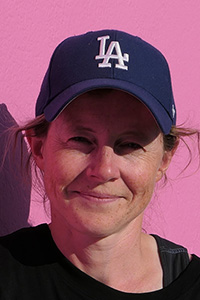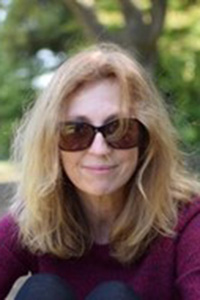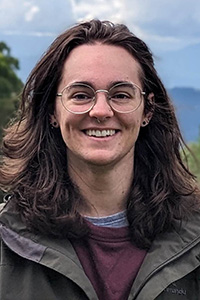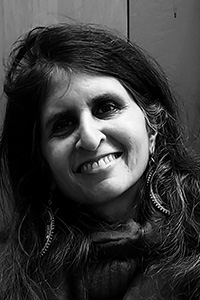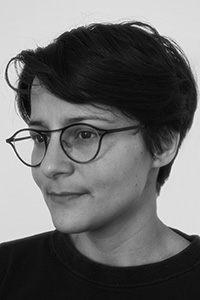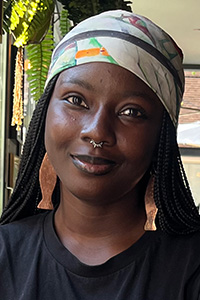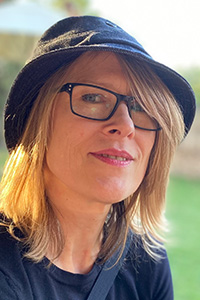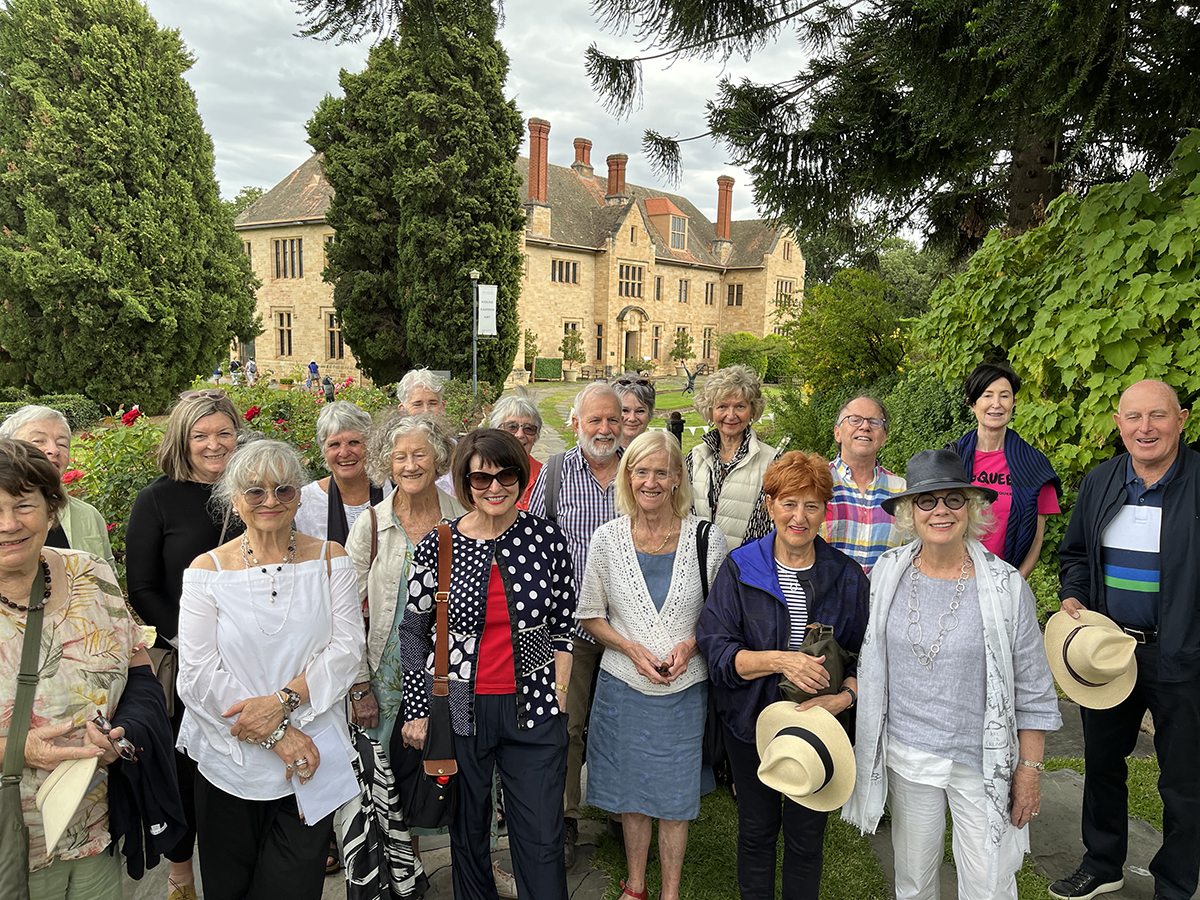Information (254)
Children categories
Thanking our Partners (14)
Australian Book Review is assisted by the Australian Government through Creative Australia, its principal arts investment and advisory body, and is also supported by the South Australian Government through Arts South Australia. We also acknowledge the generous support of our university partner, Monash University; and we are grateful for the support of the Copyright Agency Cultural Fund, Good Business Foundation (an initiative of Peter McMullin AM), the Sidney Myer Fund, Australian Communities Foundation, Sydney Community Foundation, AustLit, Readings, our travel partner Academy Travel, the City of Melbourne, and Arnold Bloch Leibler.
View items...Media Contact
For all media related enquiries, please contact Pitch Projects on This email address is being protected from spambots. You need JavaScript enabled to view it.
Index for 2022: Nos 439–449 & online features
ABR Index 2022
NB: this index includes material published in the print magazine and online in 2022.
2022 Australian Book Review Index
Subscribers can read these reviews online here.
AITKEN, Adam, Revenants, Giramondo, 443/50, Toby Davidson
ALBISTON, Jordie, Fifteeners, Puncher & Wattmann, 440/44, Joan Fleming
ALIGHIERI, Dante (translated by D.M. Black), Purgatorio, NYRB Classics, 441/45, Theodore Ell
ALLSOPP, Kimberley, Love and Other Puzzles, HarperCollins, 442/40, Debra Adelaide
ALSOP, Maureen, Pyre, What Books Press, 445/50, Anders Villani
ANDERSON, Clare, Convicts: A global history, Cambridge University Press, 443/55, Briony Neilson
ANDREWS, Rosie, The Leviathan, Raven Books, 443/25, Diane Stubbings
ANDRIESSE, Alex (ed.), The Uncollected Essays of Elizabeth Hardwick, New York Review Books, 446/20, Michael Hofmann
ANYIETH, Akuch Kuol, Unknown: A refugee’s story, Text Publishing, online only, Nicholas Bugeja
ARNOTT, Georgina (ed.), Judith Wright: Selected writings, La Trobe University Press, 442/23, Philip Mead
ARNOTT, Robbie, Limberlost, Text Publishing, 447/38, Jennifer Mills
ASHENDEN, Dean, Telling Tennant’s Story: The strange career of the great Australian silence, Black Inc., 443/16, Kim Mahood
ATHERTON, Cassandra and Paul Hetherington (eds.), The Language in My Tongue: An anthology of Australian and New Zealand poetry, FarFlung Editions, 445/51, David Mason
ATKINS, Brendan, The Naturalist: The remarkable life of Allan Riverstone McCulloch, NewSouth, 449/23, Danielle Clode
ATKINSON, Alan, Elizabeth and John: The Macarthurs of Elizabeth Farm, NewSouth, 448/8, Penny Russell
ATWOOD, Margaret, Burning Questions: Essays and occasional pieces, 2004–2021, Chatto & Windus, 442/24, Andrea Goldsmith
BACKDERF, Derf, Kent State, Abrams ComicArts, 439/24, Bernard Caleo
BACON, Eugen, Danged Black Thing, Transit Lounge, 443/31, Cassandra Atherton
BAMSTON, Troy, Bob Hawke: Demons and destiny, Viking, 441/12, Patrick Mullins
BARNETT, Katy and Jeremy Gans, Guilty Pigs: The weird and wonderful history of animal law, La Trobe University Press, 442/12, Sophie Riley
BEARD, Mary, Twelve Caesars: Images of power from the ancient world to the modern, Princeton University Press, 439/19, Alastair J.L. Blanshard
BEAUMAN, Ned, Venomous Lumpsucker, Hodder & Stoughton, 449/51, J.R Burgmann
BEAUMONT, Joan, Australia’s Great Depression: How a nation shattered by the Great War survived the worst economic crisis it has ever faced, Allen & Unwin, 442/17, Benjamin Huf
BEECH, Isobel, Sunbathing, Allen & Unwin, 445/27, Georgia White
BEEVOR, Anthony, Russia: Revolution and civil war 1917–1921, Weidenfeld & Nicolson, 448/12, Tim McMinn
BEILHARZ, Peter and Sian Supski (eds.), The Work of History: Writing for Stuart Macintyre, Melbourne University Press, 447/22, Christina Twomey
BENSON, Simon and Geoff Chambers, Plagued: Australia’s two years of hell – the inside story, Pantera Press, 448/19, Joshua Black
BERNSTEIN, Charles, Topsy-Turvy, Chicago University Press, 440/45, Gig Ryan
BIRD, Carmel, Telltale: Reading writing remembering, Transit Lounge, 446/41, Gregory Day
BIRMINGHAM, Kevin, The Sinner and the Saint: Dostoevsky, a crime and its punishment, Allen Lane, 440/22, Geordie Williamson
BONGIORNO, Frank, Dreamers and Schemers: A political history of Australia, La Trobe University Press, 448/16, James Walter
BOSCO, David, The Poseidon Project: The struggle to govern the world’s oceans, Oxford University Press, 446/51, Killian Quigley
BRADY, Andrea, Poetry and Bondage: A history and theory of lyric constraint, Cambridge University Press, 441/46, John Hawke
BROINOWSKI, Richard, Fact or Fission: The truth about Australia’s nuclear ambitions, Scribe, 447/54, Jessica Urwin
BROOKS, Geraldine, Horse, Hachette, 444/40, Peter Craven
BROPHY, David, China Panic: Australia’s alternative to paranoia and pandering, La Trobe University Press, 442/54, Tim Robertson
BROWN, Pam, Endings & Spacings, Never Never Books, 439/44, Abigail Fisher
BROWN, Pam, Stasis Shuffle, Hunter Publications, 442/48, Chris Arnold
BULLOUGH, Oliver, Butler to the World: How Britain became the servant of tycoons, tax dodgers, kleptocrats and criminals, Profile Books, 445/55, Kieran Pender
BURNS, Shannon, Childhood, Text Publishing, 447/31, Peter Rose
BURTON, Mirranda, Underground, Allen & Unwin, 439/24, Bernard Caleo
BURTON, Pamela and Meredith Edwards, Persons of Interest: An intimate account of Cecily and John Burton, ANU Press, 446/42, Peter Edwards
CAHILL, James, Tiepolo Blue, Hodder & Stoughton, 446/26, Theodore Ell
CAHILL, Michelle, Daisy & Woolf, Hachette, 444/38, Diane Stubbings
CAMPBELL, Marion May, languish, Upswell Publishing, 445/52, Jennifer Harrison
CARMAN, Luke, An Ordinary Ecstasy, Giramondo, 448/38, Sascha Morrell
CARMICHAEL, Jay, Marlo, Scribe, 445/30, Jay Daniel Thompson
CARR, Helen and Suzannah Lipscomb (eds.), What is History, Now? How the past and present speak to each other, Weidenfield & Nicolson, 439/16, Billy Griffiths
CARROLL, Steven, Goodnight, Vivienne, Goodnight, Fourth Estate, 441/29, Patrick Allington
CARTER. Nanette and Robyn Oswald-Jacobs, Frances Burke: Designer of modern textiles, Miegunyah, 439/49, Christopher Menz
CASEY-HARDY, Anne, Cautionary Tales for Excitable Girls, Scribner, 447/50, Alex Cothren
CATALANO, Gary, Collected Prose Poems, Life Before Man, 440/47, Paul Hetherington
CAUSER, Tim and Phillip Schofield (eds.), Panopticon versus New South Wales and Other Writings on Australia, UCL Press, 449/26, Gordon Pentland
CAUSER, Tim, Margot Finn, and Philip Schofield (eds.), Jeremy Bentham and Australia, UCL Press, 449/26, Gordon Pentland
ĆEHIĆ, Ennis, Sadvertising, Vintage, 443/31, Cassandra Atherton
CHAMBERLAIN, Lesley, Rilke: The last inward man, Pushkin Press, 449/24, Alison Croggon
CHARLES, Stephen and Catherine Williams, Keeping Them Honest: The case for a genuine national integrity commission and other vital democratic reforms, Scribe, 442/11, Chris Wallace
CHRISTIN, Pierre and Sébastian Verdier (translated by Edward Gauvin), Orwell, Self Made Hero, 443/57, Bernard Caleo
CHRULEW, Matthew and Thom Van Dooren (eds.), Kin: Thinking with Deborah Bird Rose, Duke University Press, 449/58, Prithvi Varatharajan
CLARK, Anna, Making Australian History, Vintage, 440/13, Penny Russell
CLARK, John, An Eye for Talent: A life at NIDA, Coach House Books, 449/60, Ben Brooker
CLARK, Katerina, Eurasia without Borders: The dream of a leftist literary commons 1919–1943, Harvard University Press, 441/36, Nicholas Jose
CLODE, Danielle, Koala: A life in trees, Black Inc., 445/59, Peter Menkhorst
COLLETTE, Katherine, The Competition, Text Publishing, 442/40, Debra Adelaide
COLLEY, Brendan, The Signal Line, Transit Lounge, 443/29, Naama Grey-Smith
COPER, Ed, Facts and Other Lies: Welcome to the disinformation age, Allen & Unwin, 442/58, David Ferrell
COTTON, James, The Australians at Geneva: Internationalist diplomacy in the interwar years, Melbourne University Press, 449/16, Michelle Staff
COURTENAY, Christine, Bryce Courtenay: Storyteller, Viking, 449/25, Jacqueline Kent
CUNNINGHAM, Sophie, This Devastating Fever, Ultimo Press, 446/27, Ann-Marie Priest
CURRAN, James, Australia’s China Odyssey: From euphoria to fear, NewSouth, 445/11, Hugh White
CURRAN, James, Campese: The last of the dream sellers, Scribe, 439/59, Barnaby Smith
DALEY, Paul, Jesustown: A Novel, Allen & Unwin, 446/29, Susan Midalia
DAMASIO, Antonio, Feeling and Knowing: Making minds conscious, Hachette, 440/55, Diane Stubbings
DAVIDSON, Jim, Emperors in Lilliput: Clem Christesen of Meanjin and Stephen Murray-Smith of Overland, The Miegunyah Press, 447/30, Graeme Davison
DAVIES, Paul, What’s Eating the Universe? And other cosmic questions, Allen Lane, 440/60, Robyn Arianrhod
DAVIS, Lydia, Essays Two: On Proust, translation, foreign languages, and the City of Arles, Hamish Hamilton, 444/15, Frances Wilson
DAVIS, Rhett, Hovering, Hachette, 440/29, Debra Adelaide
DAY, Gregory, Words Are Eagles: Selected writings on the nature and language of place, Upswell, 444/49, Tom Griffiths
DE MESQUITA, Bruce Bueno, The Invention of Power: Popes, kings, and the birth of the West, Public Affairs, 449/57, Miles Pattenden
DEWEY MORGAN, Lia, Bath Songs, no more poetry, 447/56, Ender Başkan
DINIĆ, Jelena, In the Room with the She Wolf, Wakefield Press, 441/43, Jennifer Harrison
DISNEY, Dan, >>>&||(accelerations and inertias), Vagabond, 439/44, Abigail Fisher
DOOLEY, Gillian, Matthew Flinders: The man behind the map, Wakefield Press, 449/56, Matthew Cunneen
DOVEY, Ceridwen and Eliza Bell, Mothertongues, Hamish Hamilton, Sarah Gory
DREWE, Robert, Nimblefoot, Hamish Hamilton, 445/25, Michael Winkler
DUNN, Daisy, Not Far from Brideshead: Oxford between the Wars, Hachette, 448/31, Miles Pattenden
DYER, Geoff, The Last Days of Roger Federer: And other endings, Canongate, 448/28, Geordie Williamson
EGAN, Jennifer, The Candy House, Corsair, 442/36, James Bradley
ELL, Theodore, Beginning in Sight, Recent Work Press, 446/47, Rose Lucas
ELLIS, Jack, Home and Other Hiding Places, Ultimo Press, 440/29, Debra Adelaide
ERDRICH, Louise, The Sentence, Hachette, 439/40, Alice Nelson
EVANS, Gareth, Good International Citizenship: The case for decency, Monash University Publishing, 446/19, Alison Broinowski
FAHEY, Diane, Glass Flowers, Puncher & Wattmann, 443/48, Sarah Day
FAINE, Jon, Apollo and Thelma: A true tall tale, Hardie Grant, 445/44, Michael McGirr
FALKINER, Suzanne, Rose: The extraordinary voyage of Rose de Freycinet, the stowaway who sailed around the world for love, ABC Books, 445/22, Danielle Clode
FAYE, Shon, The Transgender Issue: An argument for justice, Allen Lane, online only, Elizabeth Duck-Chong
FEATHERSTONE, Nigel, My Heart is a Little Wild Thing, Ultimo Press, 445/30, Jay Daniel Thompson
FELSCH, Philipp (translated by Tony Crawford), The Summer of Theory: History of a rebellion, Polity, 440/12, Sheila Fitzpatrick
FELSEN, Yuri (translated by Bryan Karetnyk), Deceit, Prototype, 444/44, Kate Crowcroft
FERNANDES, Clinton, Subimperial Power: Australia in the international arena, Melbourne University Press, 449/11, Kevin Foster
FITZGERALD, Else, Everything Feels Like the End of the World, Allen & Unwin, 447/49, Alex Cothren
FITZHARRIS, Lindsey, The Facemaker: One surgeon’s battle to mend the disfigured soldiers of World War I, Allen Lane, 448/14, Michael Winkler
FITZPATRICK, Sheila, The Shortest History of the Soviet Union, Black Inc., 446/12, Luke Stegemann
FLEMING, Joan, Song of Less, Cordite Books, 442/43, Geoff Page
FLETCHER, Ned, The English Text of the Treaty of Waitangi, Bridget Williams Books, 449/41, Bain Attwood
FLETT, Alison, Where We Are, Cordite Books, 445/54, Chris Arnold
FLYNN, Chris, Here be Leviathans, University of Queensland Press, 447/49, Alex Cothren
FOGARTY, Lionel, Harvest Lingo: New poems, Giramondo, 446/48, Philip Morrissey
FORD, Thomas H., How to Read a Poem: Seven steps, Routledge, 439/43, David Mason
FRAME, Tom, Veiled Valour: Australian Special Forces in Afghanistan and war crimes allegations, UNSW Press, 446/17, Kevin Foster
FRANKS, Rachel, An Uncommon Hangman: The life and deaths of Robert ‘Nosey Bob’ Howard, NewSouth, 442/20, Penny Russell
FREVERT, Ute, The Politics of Humiliation: A modern history, Oxford University Press, 443/54, Philip Dwyer
GADSBY, Hannah, Ten Steps to Nanette, Allen & Unwin, 443/10, Sarah Balkin
GARNER, Helen, How to End a Story: Diaries 1995 –1998, Text, 439/8, Lisa Gorton
GERSTLE, Gary, The Rise and Fall of the Neoliberal Order: America and the world in the free market era, Oxford University Press, 448/23, Ian Tyrell
GHOSH, Amitav, The Nutmeg’s Curse: Parables for a planet in crisis, John Murray, 442/51, Killian Quigley
GIBIAN, Jane, Beneath the Tree Line, Giramondo, 441/43, Jennifer Harrison
GIBSON, Katerina, Women I Know, Scribner, 449/48, Debra Adelaide
GILLIGAN, James and David A.J. Richards, Holding a Mirror up to Nature: Shame, guilt and violence in Shakespeare, Cambridge University Press, 441/50, P. Kishore Saval
GILMARTIN, Bridget, Strange Animals, no more poetry, 447/56, Ender Başkan
GÍSLASON, Kári, The Sorrow Stone, University of Queensland Press, 440/33, Dilan Gunawardana
GOLDHILL, Simon, The Christian Invention of Time: Temporality and the literature of late antiquity, Cambridge University Press, 446/56, David T. Runia
GOODFELLOW, Geoff, Blight Street, Walleah Press, 442/43, Geoff Page
GORTON, Lisa, Mirabilia: New poems, Giramondo, 447/54, Anders Villani
GRAY, Robert, Rain Towards Morning: Selected poems and drawings, Puncher & Wattmann, 446/46, Judith Beveridge
GREENWELL, Tom and Chris Bonnor, Waiting for Gonski: How Australia failed its schools, UNSW Press, 443/51, Ilana Snyder
GUNAYDIN, Eda, Root & Branch: Essays on inheritance, NewSouth, 444/33, Mindy Gill
GWYNNE, Phillip, The Break, Penguin Books, 441/31, Ben Chandler
HACKETT, Elizabeth, The Elizabethan Mind: Searching for the self in an age of uncertainty, Yale University Press, 446/42, P. Kishore Saval
HARRY, J.S., New and Selected Poems, Giramondo, 442/42, Judith Bishop
HASLUCK, Nicholas, Bench and Book, Arcadia, 446/54, Michael Sexton
HENDRICK, Kate, Fish Out of Water, Text Publishing, 441/31, Ben Chandler
HENDY, David, The BBC: A people’s history, Profile Books, 449/37, Paul Long
HENRY-JONES, Eliza, Salt and Skin, Ultimo Press, 447/44, Katherine Brabon
HETI, Sheila, Pure Colour, Harvill Secker, online only, Georgie Harriss
HILL, David, Reckoning: The forgotten children and their quest for justice, William Heinemann, 442/57, Jacqueline Kent
HOBBS, Mia Martin, Return to Vietnam: An oral history of American and Australian veterans’ journeys, Cambridge University Press, 441/18, Peter Edwards
HOBBY, Nathan, The Red Witch: A biography of Katharine Susannah Prichard, Miegunyah Press, 444/13, Sheila Fitzpatrick
HOCKEY, Joe with Leo Shanahan, Diplomatic: A Washington memoir, HarperCollins, 443/11, Timothy J. Lynch
HOLBROOK, Carolyn, Lyndon Megarrity and David Lowe (eds.), Lessons from History: Leading historians tackle Australia’s greatest challenges, NewSouth, 444/18, Penny Russell
HOLLAND-BATT, Sarah, The Jaguar, UQP, 443/46, David Mason
HOOPER, Chloe, Bedtime Story, Simon & Schuster, 442/49, Brenda Walker
HORE, Jarrod, Visions of Nature: How landscape photography shaped settler colonialism, University of California Press, 444/32, Gary Werskey
HORNER, David, The War Game: Australian war leadership from Gallipoli to Iraq, Allen & Unwin, 447/19, Peter Edwards
HOUELLEBECQ, Michel (translated by Andrew Brown), Interventions 2020, Polity, 444/36, David Jack
HOWARD, John, A Sense of Balance, HarperCollins, 447/21, Patrick Mullins
ILANBEY, Sumeyya, Daniel Andrews: The revealing biography of Australia’s most powerful premier, Allen & Unwin, 447/12, Gideon Haigh
IVORY, James, Solid Ivory, Corsair, 441/57, Ian Britain
JABLONKA, Ivan (translated by Nathan Bracher), A History of Masculinity: From patriarchy to gender justice, Allen Lane, 444/17, Shannon Burns
JACOBSON, Howard, Mother’s Boy: A writer’s beginning, Jonathan Cape, 444/47, Don Anderson
JAIRETH, Subhash, Aflame, Life Before Man, 441/42, Luke Beesley
JAKOBSEN, Mette, The Wingmaker, Text, 439/37, Polly Simons
JANAKIRAMANAN, Neela, The Registrar, Allen & Unwin, 446/30, Debra Adelaide
JEFFREYS-JONES, Rhodri, A Question of Standing: The history of the CIA, Oxford University Press, 446/33, Timothy J. Lynch
JEFFRIES, Stuart, Everything, All the Time, Everywhere: How we became postmodern, Verso Books, online only, Heather Blakey
JENKINS, David, Young Soeharto: The making of a soldier, 1921–1945, Melbourne University Press, 441/19, David Reeve
JOHNSON, A. Frances, Save As, Puncher & Wattmann, 439/48, Gregory Day
JONES, Barry (ed.), The Penalty Is Death: State power, law, and justice, Scribe, 447/23, Christopher Ward
JONES, Darryl, Curlews on Vulture Street: Cities, birds, people and me, NewSouth, 448/50, Peter Menkhorst
JONES, Gail, Salonika Burning, Text Publishing, 448/37, Diane Stubbings
JONES, Zach, Growing Up in Flames, Text Publishing, 444/42, Ben Chandler
JORDAN, Toni, Dinner with the Schnabels, Hachette, 442/40, Debra Adelaide
JOYCE, James and Catherine Flynn (ed.), The Cambridge Centenary Ulysses: The 1922 text with essays and notes, Cambridge University Press, 448/30, Ronan McDonald
KASSAB, Yumna, Australiana, Ultimo Press, 440/32, Jennifer Mills
KEATS CITRON, Danielle, The Fight for Privacy: Protecting dignity, identity and love in the digital age, Chatto & Windus, 448/25, Jessica Lake
KEEN, Steve, The New Economics: A manifesto, Polity, 446/54, Benjamin Huf
KEMISH, Ian, The Consul, University of Queensland Press, 448/52, Alison Broinowski
KEMP, Josh, Banjawarn, UWA Publishing, 441/33, Jennifer Mills
KENNEDY, Paul, Funkytown, Affirm Press, online only, Nicholas Bugeja
KENT, Hannah, Devotion, Picador, 439/41, Rose Lucas
KERBAJ, Richard, Five Eyes: The untold story of the international spy network, Blink, 449/40, Peter Edwards
KIM, Annabel L., Cacaphonies: The excremental canon of French literature, University of Minnesota Press, 334/39, David Jack
KINGSOLVER, Barbara, Demon Copperhead, Allen & Unwin, 449/50, Paul Giles
KOFMAN, Lee, The Writer Laid Bare: Mastering emotional honest in a writer’s art, craft and life, Ventura Press, 443/33, Merav Fima
KOVNER, Sarah, Prisoners of the Empire: Inside Japanese POW camps, Harvard University Press, 440/51, Joan Beaumont
LAI, Lee, Stone Fruit, Fantagraphics Books, 449/48, Bernard Caleo
LAMOND, Julieanne, Lohrey, The Miegunyah Press, 446/31, Brenda Walker
LAWRENCE, Anthony and Audrey Molloy, Ordinary Time, Pitt Street Poetry, 449/53, Rose Lucas
LAWRENCE, Anthony, Ken, Life Before Man, 441/42, Luke Beesley
LE BEAU, Nellie, Inheritance, Puncher & Wattmann, 443/44, Anders Villani
LE CARRÉ, John, Silverview, Viking, 439/39, Morag Fraser
LE GRAND, Chip, Lockdown, Monash University Publishing, 447/14, David Jack
LEFEVRE, Carol, The Tower, Spinifex Press, 448/40, Charle Malycon
LEIGH, Andrew, What’s the Worst That Could Happen?: Existential risk and extreme politics, MIT Press, 440/16, Gareth Evans
LIMPRECHT, Eleanor, The Coast, Allen & Unwin, 445/39, Penny Russell
LOXLEY, Will, Writing in the Dark: Bloomsbury, the Blitz and Horizon Magazine, Weidenfeld & Nicolson, 440/20, Paul Kildea
LU, Siang, The Whitewash, University of Queensland Press, 446/28, Dilan Gunawardana
LUI-CHIVIZHE, Leah, Masked Histories: Turtle Shell Masks and Torres Strait Islander People, The Miegunyah Press, online only, Ben Silverstein
LUKINS, Robert, Loveland, Allen & Unwin, 440/29, Debra Adelaide
LYONS, Martyn, Dear Prime Minister: Letters to Robert Menzies 1949–1966, UNSW Press, 439/12, Brenda Niall
MACGILLIS, Alec, Fulfillment: Winning and losing in one-click America, Scribe, 439/55, Jack Callil
MACINTYRE, Stuart, The Party: The Communist Party of Australia from heyday to reckoning, Allen & Unwin, 441/14, Sheila Fitzpatrick
MAGEE, Audrey, The Colony, Faber, 443/25, Diane Stubbings
MAHOOD, Kim, Wandering with Intent: Essays, Scribe, 449/54, Shannyn Palmer
MANJAPRA, Kris, Black Ghost of Empire: The long death of slavery and the failure of emancipation, Allen Lane, 447/27, Georgina Arnott
MANNING, Paddy, The Successor: The high-stakes life of Lachlan Murdoch, Black Inc., 449/21, Patrick Mullins
MARGOYLES, Miriam, This Much is True, John Murray Press, 439/58, Carol Middleton
MASON, David, Pacific Light, Red Hen Press, 448/44, Geoff Page
MAY POWELL, Shannon, Can we rest tonight in the amnesia of pleasure, no more poetry, 447/57, Ender Başkan
McCALMAN, Iain, Delia Akeley and the Monkey: A human-animal story of captivity, patriarchy and nature, Upswell, 440/49, Libby Robin
McCAUSLAND, Vanessa, The Beautiful Words, HarperCollins, 439/37, Polly Simons
McCOURT, John, Consuming Joyce: 100 years of Ulysses in Ireland, Bloomsbury Academic, 445/40, Gary Pearce
McCULLOCH, Scott, Basin: A novel, Black Inc., 445/34, Morgan Nunan
McEWAN, Ian, Lessons, Jonathan Cape, 447/39, Geordie Williamson
McFARLANE, Fiona, The Sun Walks Down, Allen & Unwin, 449/46, Patrick Allington
McGREGOR, Fiona Kelly, Iris, Picador, 449/45, Felicity Plunkett
McGREGOR, Fiona, Buried Not Dead, Giramondo, 439/51, Sophie Knezic
McGUINNESS, Phillipa, Skin Deep: The inside story of our outer selves, Vintage Books, 441/38, Diane Stubbings
McGURL, Mark, Everything and Less: The novel in the age of Amazon, Verso, 441/21, James Ley
McHUGH, Siobhán, The Power of Podcasting, Telling stories through sound, UNSW Press, 441/51, Astrid Edwards
McLACHLAN, Mat, The Cowra Breakout, Hachette, 446/53, Seumas Spark
McLEAN, Felicity, Red, Fourth Estate, 443/28, Laura Elizabeth Woollett
MENZIES-PIKE, Catriona (ed.), Open Secrets: Essays on the writing life, Sydney Review of Books, 444/48, Alex Cothren
MEYER, Angela, Moon Sugar, Transit Lounge, 448/42, Jennifer Mills
MEYRICK, Julian, Australia in 50 Plays, Currency Press, 443/58, Andrew Fuhrmann
MIDALIA, Susan, Miniatures: A collection of short stories, Night Parrot Press, 449/47, Debra Adelaide
MILLER, Steven, The Exhibitionists: A history of Sydney’s Art Gallery of New South Wales, Art Gallery of New South Wales, 440/65, David Hansen
MILLETT, Patsy, Inseparable Elements: Dame Mary Durack, a daughter’s perspective, Fremantle Press, 440/52, Susan Sheridan
MONBIOT, George, Regenesis, Allen Lane, 448/47, Ben Brooker
MOORE, Bob, Prisoners of War: Europe: 1939–1956, Oxford University Press, 448/11, Joan Beaumont
MOORE-GILBERT, Kylie, The Uncaged Sky: My 804 days in an Iranian prison, Ultimo Press, 443/60, Hessom Razavi
MORTON, Steve, Australian Desserts: Ecology and landscapes, CSIRO Publishing, 442/50, Saskia Beudel
MOSHFEGH, Ottessa, Lapvona, Jonathan Cape, 447/43, Laura Elizabeth Woollett
MOSSAMMAPARAST, Marjon, And to Ecstasy, Upswell Publishing, 445/52, Jennifer Harrison
MOUNK, Yascha, The Great Experiment: How to make diverse democracies work, Bloomsbury, 449/12, Ben Wellings
MÜLLER, Jan-Werner, Democracy Rules, Allen Lane, 439/52, Ben Wellings
MUNRO, Doug, History Wars: The Peter Ryan–Manning Clark controversy, ANU Press, 439/13, Mark McKenna
MURAKAMI, Haruki (translated by Philip Gabriel and Ted Goossen), Novelist as a Vocation, Harvill Secker, 449/52, Cassandra Atherton
MUSGRAVE, David, Selected Poems, Eyewear Publishing, 439/47, Geoff Page
NELSON, Alice, Faithless, Vintage, 445/35, Nicole Abadee
NIALL, Brenda, My Accidental Career, Text Publishing, 441/52, Jacqueline Kent
NICHOLS, Tom, Our Own Worst Enemy: The assault from within on modern democracy, Oxford University Press, 441/23, Glyn Davis
NOTT, Michael, August Kleinzahler, and Clive Wilmer (eds.), The Letters of Thom Gunn, Faber, 445/48, Ian Dickson
NUGENT, Carly, Sugar, Text Publishing, 444/42, Ben Chandler
O’BEIRNE, Sean, Helen Garner, Black Inc., 442/26, Beejay Silcox
O’BRIEN, Damen, Animals with Human Voices, Recent Works Press, 440/43, Sarah Day
O’FARRELL, Maggie, The Marriage Portrait, Hachette, 448/43, Amy Walters
O’REILLY, Paddy, Other Houses, Affirm Press, online only, Sonia Nair
ORLIN, Lena Cowen, The Private Life of William Shakespeare, Oxford University Press, 441/48, David McInnis
ORR, Sue, Loop Tracks, Upswell Publishing, 440/29, Brigid Magner
OUSTON, Adam, Waypoints, Splice, online only, J.J. Errington
PAGDEN, Anthony, The Pursuit of Europe: A history, Oxford University Press, 442/56, Peter McPhee
PARRISH, Tommi, Men I Trust, Scribe, 449/48, Bernard Caleo
PATCHETT Ann, These Precious Days, Bloomsbury, 439/60, Nicole Abadee
PATRICK, Aaron, Ego: Malcolm Turnbull and the Liberal Party’s civil war, HarperCollins, 445/13, Patrick Mullins
PEARSON, Roger, The Beauty of Baudelaire: The poet as alternative lawgiver, Oxford University Press, 444/52, John Hawke
PIKETTY, Thomas (translated by Steven Rendall), A Brief History of Equality, Harvard University Press, 444/19, Yassmin Abdel-Magied
PIPER, Sally, Bone Memories, UQP, 445/27, Georgia White
POTTER, Claire, Acanthus, Giramondo, 443/48, Sarah Day
POTTER, Simon, This Is The BBC: Entertaining the nation, speaking for Britain, 1922–2022, Oxford University Press, 449/37, Paul Long
POWELL, Nicholas, Trap Landscape, Hunter Publishers, 446/.47, Rose Lucas
PRENDERGAST, Julia, Bloodrust, Spineless Wonders, 449/47, Debra Adelaide
PRESCOTT, Shaun, Bon and Lesley, Giramondo, 448/36, Morgan Nunan
PRESTON, Edwina, Bad Art Mother, Wakefield, 445/24, Jane Sullivan
PRIEST, Ann-Marie, My Tongue Is My Own: A life of Gwen Harwood, La Trobe University Press, 443/8, Stephanie Trigg
QUILTY, Andrew, August in Kabul: America’s last days in Afghanistan, Melbourne University Press, 446/15, Kieran Pender
RABIN, Sean, The Good Captain, Transit Lounge, 442/37, Alex Cothren
RAWSON, Jane, A History of Dreams, Brio Books, 441/27, Lisa Bennett
RENNEX, Bronwyn, Life with Birds: A suburban lyric, Upswell, 446/50, Sarah Gory
RICHARDSON, John, A Life of Picasso: The minotaur years, 1933-1943, Jonathan Cape, 444/60, Patrick McCaughey
RILKE, Rainer Maria (translated by Alison Croggon), Duino Elegies, Newport Street Books, 444/55, Humphrey Bower
RIWOE, Mirandi, The Burnished Sun, UQP, 443/31, Cassandra Atherton
ROBERTS, Geoffrey, Stalin’s Library: A dictator and his books, Yale University Press, 441/16, Iva Glisic
ROFF, Andrew, The Teeth of a Slow Machine, Wakefield Press, 444/41, Anthony Lynch
ROOKE, Drew, A Witness of Fact: The peculiar case of chief forensic pathologist Colin Manock, Scribe, 440/54, Alecia Simmonds
ROSA, Paul Dalla, An Exciting and Vivid Inner Life, Allen & Unwin, 444/41, Anthony Lynch
ROSE, Heather, Nothing Bad Ever Happens Here, Allen & Unwin, 448/27, Kirsten Tranter
RUNCIMAN, David, Confronting Leviathan: A history of ideas, Profile Books, 439/17, David Kearns
RYAN, Kate, The Golden Book, Scribe, 439/37, Polly Simons
RYAN, Tracy, Rose Interior, Giramondo, 444/53, Maria Takolander
SAKR, Omar, Son of Sin, Affirm Press, 442/39, Jay Daniel Thompson
SALOM, Phillip, Sweeney and the Bicycles, Transit Lounge, 448/41, Kerryn Goldsworthy
SAMUELS, Robert and Toluse Olorunnipa, His Name Is George Floyd, Bantam Press, 447/50, Declan Fry
SCHMID, Konrad and Jens Schröter (translated by Peter Lewis), The Making of the Bible: From the first fragments to sacred scripture, Harvard University Press, 440/56, Constant J. Mews
SCHMIDT, Sarah, Blue Hour, Hachette, 445/26, Georgia White
SCHULTZ, Julianne, The Idea of Australia: A search for the soul of the nation, Allen & Unwin, 447/34, Robert Phiddian
SERONG, Jock, The Settlement, Text Publishing, 447/42, Brenda Walker
SHAMSIE, Kamila, Best of Friends, Bloomsbury Circus, 447/41, Andrea Goldsmith
SHERBORNE, Craig, The Grass Hotel, Text Publishing, 441/32, Gay Bilson
SHOBBROOK, John, Operation Jungle, UQP, 443/61, Lyndon Megarrity
SHOLL, Natasha, Found, Wanting: A memoir, Ultimo Press, 441/53, Andrew Broertjes
SHORT, Philip, Putin: His life and times, The Bodley Head, 446/11, Sheila Fitzpatrick
SIMPSON, Inga, Willowman, Hachette, 449/44, Diane Stubbings
SMITH, Bernard, European Vision and the South Pacific, Third Edition, The Miegunyah Press, 449/14, Lynette Russell
SMITH, Hazel, ecliptical, Spineless Wonders, 445/54, Chris Arnold
SMITH, Justin E.H., The Internet Is Not What You Think It Is: A history, a philosophy, a warning, Princeton University Press, 444/28, Geordie Williamson
SMITH, Mark, If Not Us, Text Publishing, 441/31, Ben Chandler
SMITH, Tracy K., Such Color: New and selected poems, Graywolf Press, 439/46, Felicity Plunkett
SOYINKA, Wole, Chronicles from the Land of the Happiest People on Earth, Bloomsbury, 439/36, Marc Mierowsky
SPARROW, Jeff, Crimes against Nature: Capitalism and global heating, Scribe, 442/61, Kurt Johnson
SPARROW, Jeff, Provocations: New and selected writings, NewSouth, 447/15, Anwen Crawford
STANLEY, Jessica, A Great Hope, Picador, 440/28, Laura Elizabeth Woollett
STASI, Paul (ed), Raymond Williams at 100, Rowman & Littlefield, 440/58, Gary Pearce
STAVANS, Ilan, What is American Literature?, Oxford University Press, 442/27, Paul Giles
STEVENSON, Benjamin, Everyone in My Family Has Killed Someone, Michael Joseph, 442/38, Francesca Sasnaitis
STEWART, Emily, Running time, Vagabond, 443/44, Anders Villani
STOLLBERG-RILINGER, Barbara (translated by Robert Savage), Maria Theresa: The Habsburg empress in her time, Princeton University Press, 443/53, Miles Pattenden
STUART, Douglas, Young Mungo, Picador, 443/24, Shannon Burns
SUMPTION, Jonathan, Law in a Time of Crisis, Profile Books, 439/54, Kieran Pender
TÁÍWÒ, Olúféṃi O., Elite Capture: How the powerful took over identity politics (and everything else), Pluto Press, 448/22, Yassmin Abdel-Magied
TAME, Grace, The Ninth Life of a Diamond Miner: A memoir, Macmillan, 449/18, Zora Simic
TA-WEI, Chi, The Membranes: A novel, Columbia University Press, online only, Josh Stenberg
TEN-DOESSCUATE CHU, Petra, Max Donnelly, Andrew Montana, Suzan Veldink, Daniel Cottier: Designer, decorator, dealer, Yale University Press, 440/62, Matthew Martin
THOMPSON, Helen, Disorder: Hard times in the 21st century, Oxford University Press, 444/11, Tim McMinn
THREADGOLD, Steven and Jessica Gerrard, Class in Australia, Monash University Publishing, 442/59, Sean Scalmer
TÓIBÍN, Colm (ed.), One Hundred Years of James Joyce’s Ulysses, Pennsylvania State University, 445/40, Gary Pearce
TOLTZ, Steve, Here Goes Nothing, Hamish Hamilton, 443/37, Amy Baillieu
TRIBE, Keith, Constructing Economic Science: The invention of a discipline 1850–1950, 449/61, Ryan Walter
TSU, Jing, Kingdom of Characters: A tale of language, obsession, and genius in modern China, Allen Lane, 443/13, James Jiang
TYERMAN, Edward, Internationalist Aesthetics: China and early Soviet culture, Columbia University Press, 443/38, Iva Glisic
TYNAN, Elizabeth, The Secret of Emu Field: Britain’s forgotten atomic tests in Australia, NewSouth, 442/21, Michael Winkler
TYRRELL, Ian, American Exceptionalism: A new history of an old idea, University of Chicago Press, 447/26, Emma Shortis
UHLMANN, Anthony, Inner and Outer Worlds: Gail Jones’ fiction, Sydney University Press, 445/19, Julieanne Lamond
VAN ONSELEN, Peter and Wayne Errington, Victory: The inside story of Labor's return to power, HarperCollins, 448/20, Martin McKenzie-Murray
VARGA, Susan, Hard Joy: Life and writing, Upswell Publishing, 444/35, Susan Sheridan
VARNEY, Denise, Patrick White’s Theatre: Australian modernism on stage, 1960—2018, Sydney University Press, Jonathan Dunk
VASEFI, Saba, Melinda Smith, and Yvette Holt (eds.), Borderless: A transnational anthology of feminist poetry, Recent Work Press, 442/45, Nadia Rhook
VILLORO, Juan (translated by Alfred MacAdam), Horizontal Vertigo: A city called Mexico, Pantheon Books, 439/57, Gabriel García Ochoa
VUONG, Ocean, Time Is a Mother, Jonathan Cape, 444/51, Lucy Van
WALKER, Ross, Harold Holt: Always one step further, La Trobe University Press, 447/10, James Walker
WALLMAN, Sam, Our Members Be Unlimited, Scribe, 443/57, Bernard Caleo
WALTER, Ben, What Fear Was, Puncher & Wattmann, 444/41, Anthony Lynch
WARD, Daniel, eternal delight paralysis, no more poetry, 447/57, Ender Başkan
WASSEF, Nadia, Chronicles of a Cairo Bookseller, Corsair, 439/22, Beejay Silcox
WEARNE, Alan, Near Believing: Selected monologues and narratives 1967–2021 Puncher & Wattmann, 448/45, Michael Farrell
WEBSTER, Allayne, That Thing I did, Wakefield Press, 444/42, Ben Chandler
WHISH-WILSON, David, The Sawdust House, Fremantle Press, 441/34, Alex Cothren
WHITE, Edmund, A Previous Life, Bloomsbury, 441/28, Robert Dessaix
WHITE, Susan, Cut, Affirm Press, 446/30, Debra Adelaide
WILLIAMS, Raymond, Culture and Politics: Class, writing, socialism, Verso, 440/58, Gary Pearce
WILSON, Dominique, Orphan Rock, Transit Lounge, 441/26, Susan Sheridan
WILSON, Eric G., Dream-Child: A life of Charles Lamb, Yale University Press, 440/17, Frances Wilson
WILSON, Sandra and Rebecca Jennings (ed.), Between Me and Myself: A memoir of murder, desire and the struggle to be free, Text Publishing, 447/33, Sam Elkin
WOLFF, Michael, Landslide: The final days of the Trump presidency, The Bridge Street Press, 439/20, Timothy J. Lynch
WOMERSLEY, Chris, The Diplomat, Picador, 444/39, Jennifer Mills
WOODWARD, Bob, Peril, Simon & Schuster, 439/20, Timothy J. Lynch
YANAGIHARA, Hanya, To Paradise, Picador, 440/34, Georgia White
YPI, Lea, Free: Coming of age at the end of history, Allen Lane, online only, Michael Lazarus
ZUBOK, Vladislav M., Collapse, Yale University Press, 446/12, Luke Stegemann
ZUBRZYCKI, John, The Shortest History of India, La Trobe University Press, 444/46, Ian Hall
ZUNZ, Olivier, The Man Who Understood Democracy: The life of Alexis de Tocqueville, Princeton University Press, 446/43, Peter McPhee
2022 Features Index
ABR Arts
ABR Arts reviews can be read here.
Festival
2022 Venice Biennale, Iva Glisic, online only
Film/Television/Streaming
A Hero (Hi Gloss Entertainment), Jordan Prosser, online only
A Stasi Comedy (Palace Films), James Cleverley, online only
Armageddon Time (Universal), Jordan Prosser, online only
Belfast (Universal Pictures), 440/63, Jordan Prosser
Benedetta (Hi Gloss Entertainment), 440/64, Miles Pattenden
Benediction (Palace Films), 439/62, Ian Britain
Bones and All (Universal Pictures), Anwen Crawford, online only
Dear Thomas (Palace Films), Ben Gook, online only
Drive My Car (Potential Films), 441/56, Dilan Gunawardana
Elvis (Warner Bros), 444/63, Jordan Prosser
Everything Went Fine (Palace Nova), Felicity Chaplin, online only
Father Stu (Sony Pictures), Miles Pattenden, online only
Flee (Madman Films), Richard Leathem, online only
Joyce Carol Oates: A Body in the Service of Mind (Jewish International Film Festival), 449/66, Sascha Morrell
Lost Illusions (Palace Films), 444/62, Felicity Chaplin
Loveland (Dark Matter Distribution), 442/64, Jordan Prosser
Maixabel (Palace/Spanish Film Festival), 443/64, Ruth McHugh-Dillon
Memoria (Madman Films), Anwen Crawford, online only
Men (Roadshow Films), Jordan Prosser, online only
Navalny (Melbourne International Film Festival), Anne Rutherford, online only
Nope (Universal Pictures), 446/60, Troy Harwood
She Said (Universal Pictures), Alecia Simmonds, online only
Sundown (Kismet Movies), 445/63, Felicity Chaplin
The Australian Wars (SBS), 448/56, Anne Rutherford
The Banshees of Inisherin (Searchlight Pictures), Jordan Prosser, online only
The Dropout (Hulu), Jordan Prosser, online only
The Godfather, Florence Honybun, online only
The Northman (Universal Pictures), Troy Harwood, online only
Three Thousand Years of Longing (Roadshow Entertainment), 447/62, Jordan Prosser
Triangle of Sadness (Sharmill Films), Jordan Prosser, online only
Music
An American in Paris (The Australian Ballet and GWB Entertainment), Tim Byrne, online only
Australian World Orchestra (Australian World Orchestra), 447/63, Michael Shmith
Australian Youth Orchestra (Melbourne Town Hall), Peter Tregear, online only
Bo Skovus with Andrea Lam, and Brahms’s Ein deutsches Requiem (Sydney Symphony Orchestra), Michael Halliwell, online only
Melbourne International Jazz Festival (Melbourne International Jazz Festival), Des Cowley, online only
Messa da Requiem (Melbourne Symphony Orchestra), Peter Rose, online only
Of the Earth and Symphony No.2, Resurrection (Sydney Symphony Orchestra), Paul Kildea, online only
St Matthew Passion (Melbourne Bach Choir), Morag Fraser, online only
War Requiem (WASO), Humphrey Bower, online only
Winterreise (Musica Viva), 445/67, Michael Shmith
Opera
A Christmas Carol (Victorian Opera), Peter Tregear, online only
Awakening Shadow (Sydney Chamber Opera), Michael Halliwell, online only
Die Walküre (Melbourne Opera), 440/66, Michael Shmith
Elektra (Victorian Opera), 447/60, Michael Shmith
Fidelio (Sydney Symphony Orchestra), Michael Halliwell
Il Trovatore (Opera Australia) 445/65, Peter Rose
Jonny spielt auf (Gärtnerplatztheater), Peter Tregear, online only
La Juive (Opera Australia), Michael Halliwell, online only
La Traviata (Opera Australia), Peter Rose, online only
Lohengrin (Opera Australia), 443/66, Peter Rose
Lucrezia Borgia (Melbourne Opera), Peter Rose, online only
Orontea (Pinchgut Opera), 444/58, Ian Dickson
Otello (Opera Australia), 441/60, Michael Halliwell
Peter Grimes (Royal Opera House), Peter Tregear, online only
Siegfried (Melbourne Opera), 448/58, Michael Shmith
The Call (Opera Queensland), 448/55, Jenna Robertson
The Human Voice (Opera Queensland), 448/55, Jenna Robertson
The Phantom of the Opera (Opera Australia), Jason Whittaker, online only
The Turn of the Screw (State Opera of South Australia), Michael Halliwell, online only
Voss (State Opera of South Australia and Victorian Opera), Michael Halliwell, online only
Watershed: The Death of Dr Duncan (Adelaide Festival), Humphrey Bower, online only
Theatre
A Raisin in the Sun (Sydney Theatre Company), 447/61, Ian Dickson
Amadeus (Red Line Productions), Ian Dickson, online only
Anna K (Malthouse Theatre), 445/61, Diana Stubbings
As You Like It (Melbourne Theatre Company), 439/66, Tim Byrne
Chalkface (State Theatre Company South Australia and Sydney Theatre Company), Ben Brooker, online only
Come Rain or Come Shine (Melbourne Theatre Company), Tim Byrne, online only
Cyrano (Melbourne Theatre Company) 448/54, Tim Byrne
Death of a Salesman (Hearth Theatre), Guy Webster, online only
Death of a Salesman (Sydney Theatre Company), 439/65, Ian Dickson
Emilia (Essential Theatre), Diane Stubbings, online only
Fun Home (Playhouse), Tim Byrne, online only
Girls & Boys (State Theatre Company of South Australia), Ben Brooker, online only
Hamlet (Bell Shakespeare), 443/65, Tim Byrne
Heroes of the Fourth Turning (Red Stitch Theatre), Guy Webster, online only
Into the Woods (Watch This Theatre Company), Tim Byrne, online only
Julius Caesar (Sydney Theatre Company), 439/67, Gabriella Edelstein
Light Shining in Buckinghamshire (Belvoir Street Theatre), Anwen Crawford, online only
Maureen: Harbinger of Death (Malthouse Theatre), Guy Webster, online only
Monsters (Malthouse Theatre), Guy Webster, online only
Opening Night (Belvoir), 441/59, Humphrey Bower
RBG: Of Many, One (Sydney Theatre Company) 449/64, Gabriella Edelstein
Strange Case of Dr Jekyll and Mr Hyde (Sydney Theatre Company), Guy Webster, online only
The Amateurs (Red Stitch Theatre), Tim Byrne, online only
The Comedy of Errors (Bell Shakespeare), 445/64, Tim Byrne
The Sound Inside (Melbourne Theatre Company), Diane Stubbings, online only
The Tempest (Sydney Theatre Company), Kirk Dodd, online only
Visual Arts
#brownmaninawhitemuseum (Grainger Museum), 441/62, Peter Tregear
Barbara Hepworth: In Equilibrium (Heide Museum of Modern Art), Sophie Knezic, online only
Data Relations (Australian Centre for Contemporary Art), Jarrod Zlatic, online only
Fred Williams: The London Drawings (Ian Potter Gallery: NGV Australia), Irena Zdanowicz
HG60, Hamilton Gallery 60th Anniversary (Hamilton Gallery), 441/63, Christopher Menz
Light: Works from Tate’s Collection (ACMI). 445/62, Sophie Knezic
Mandy Martin – A Persistent Vision (Geelong Gallery), Libby Robin, online only
Matisse: Life and spirit (The Art Gallery of New South Wales), 439/63, Julie Ewington
Queer: Stories from the NGV Collection (NGV International), 442/65, Sophie Knezic
Retainers of Anarchy (Sydney Modern), Anne Rutherford, online only
Rīvus (Museum of Contemporary Art Australia), 442/66, Julie Ewington
Venice Art Biennale (Venice Biennale), 444/59, Iva Glisic
Book Talk
COWLEY, Des, ‘A New Poetry Imprint’, online only
GRENVILLE, Kate, ‘Writers for Climate Action: Walking the walk for the climate crisis’, online only
MILSOM, Rosemarie, ‘Newcastle Writers Festival: A welcome return’, online only
SCHMID, Jaimi, ‘ANU Press’s thousandth title’, online only
Essays and Commentary
BALKIN, Sarah, ‘Stone face: The history and prehistory of deadpan’, 442/53
BEAUMONT, Joan, ‘Too busy to have time for us: Reflections on Australian studies at Harvard’, 441/39
BESSANT, Judith, Faith Gordon and Rob Watts, ‘The education minister’s jackboots’, 440/21
BONGIORNO, Frank, ‘Politics by other means: Enlarging our diminished sense of political leadership’, 442/8
BOZZI, Claudio, ‘“Under the beach umbrellas”: Italy’s fragile political system’s new test’, 447/17
CHARLES, Stephen, ‘Restoring Australia’s reputation for integrity: Labor’s new anti-corruption bill’, 449/9
CRAWFORD, Anwen, ‘A rubber cudgel of a word: the speciousness of resilience’, 445/57
CURRAN, James, ‘A long way to go: Australia’s fraught relations with China’, 446/9
DAMOUSI Joy, Stephen Charles, Catherine Williams, Frank Bongiorno, Dennis Altman, and David Latham, ‘Quo vadis, Australia?: Reorienting the nation following the election’, 444/21
DUNK, James, ‘Covid travellers: The struggle between historians and microbes’, 448/48
FORD, Thomas H., ‘Covid on the brain’, 440/35
GARBUTT, Michael, ‘The Museum of Mankind’, 446/35
GILL, Mindy, ‘’Till “real voices” wake us, and we drown’, 440/8
GOLDSWORTHY, Peter, ‘Salman’s throat: living with cancer and a fatwa’, 447/36
GORDON, Faith, ‘The case for lowering the voting age’, 442/15
HARWOOD, John, ‘Gwen Harwood and the perils of reticence: Notes of a son and literary executor’, 443/16
HORNE, Julia, ‘A new accord: Restoring good relations between government and universities’, 444/27
KENNY, Mark, ‘The power of office’, 445/8
LATHAM, David, ‘“Not being talked about”: Putting the arts back on the political stage’, 440/25
LAUGESEN, Amanda, ‘A hot novax summer: The influence of sport and Covid on Australian language’, 441/35
LAUGESEN, Amanda, ‘On boganism: Reflections on class and Australian English’, 448/33
LAUGESEN, Amanda, ‘Strong curry: On the trail of election language’, 444/45
MCEVOY, Tara, ‘The verity of his company’, 446/22
MONAGLE, Clare, ‘To wear the crown too easily: A bizarre new reign begins’, 447/9
OGILVIE, Sarah, ‘Crunk, wig, and slaps: How our language dates us in the digital world’, 443/21
PENDER, Kieran, ‘Shooting the messengers: How the Collaery case stains our democracy’, 441/8
RICHARDS, Michael, ‘Too many slips showing: Alec Bolton and Australian Book Review’, 449/36
ROSE, Peter, ‘Editor’s Diary’, 440/37
RUSSELL, Gillian, ‘Raking the past: Northern Irish fiction in the age of social media’, 447/45
SAUL, Ben, ‘The law of the jungle: Western hypocrisy over the Russian invasion of Ukraine’, 444/9
TYNAN, Elizabeth, ‘Britain’s atomic oval: The vassalage of Australian governments in the 1950s and 1960s’, 443/42
WATTS, Samuel, ‘More History, Not Less: The unnaming of Moreland City Council’, 439/33
ZUBRZYCKI, John, ‘The power paradox: Illiberalism and Hindu majoritarianism in Modi’s India’, 444/30
Prizes
Calibre Essay Prize
ATKINS, Linda, ‘Shouting Abortion: A doctor reflects on the politics and economics of terminations’, 443/34
GORY, Sarah, ‘Ghosts, Ghosts Everywhere’, 445/45
TEDESCHI, Simon, ‘This woman my grandmother’, 442/29
Peter Porter Poetry Prize
ARNOLD, Chris, ‘Sixes and Sparrows’, 439/30
DISNEY, Dan, ‘Gippslanding (triptych)’, 439/29
FARRELL, Michael, ‘“Australianesque”’, 439/27
LAWRENCE, Anthony, ‘In the Shadows of Our Heads’, 439/28
LIM, Debbie, ‘Hummingbird Country’, 439/26
ABR Elizabeth Jolley Short Story Prize
CULLEN, Nina, ‘Dog park’, 445/28
ELLIS, Tracy, ‘Natural Wonder’, 445/32
GARROW, C.J. ‘Whale Fall’, 445/36
Interviews
Open Page
ARNOTT, Robbie, 446/58
BEARD, Mary, 440/26
BRAMSTON, Troy, 441/54
BURNS, Shannon, 447/58
CLARK, Anna, 439/34
HOOPER, Chloe, 442/62
MCGREGOR, Fiona, 449/62
VARGA, Susan, 444/56
WINKLER, Michael, 445/60
Poet of the Month
FITCH, Toby, online only
LAWRENCE, Anthony, 442/47
Publisher of the Month
WHITE, Terri-ann, 448/51
Critic of the Month
ANDERSON, Don, 439/50
WILSON, Frances, 443/62
Poetry
Poems
BERNSTEIN, Charles, ‘Poem Beginning, Almost, with a Line by Duncan’, 444/34
BEVERIDGE, Judith, ‘Old Jetty’, 443/32
BISHOP, Judith, ‘Harbour’, 446/34
BISHOP, Judith, ‘The Forest’, 441/41
BRABON, Katherine, ‘Autoimmune’, 442/46
BRADY, Andrea, ‘The Rest’, 443/42
CATALANO, Gary, ‘The Building’, 440/48
CHONG, Eileen, ‘Curlew’, 440/59
DINIĆ, Jelena, ‘Close Contacts’, 440/36
ELL, Theodore, ‘Tenebrae’, 442/41
HARRISON, Jennifer, ‘Mandelbrot Set’, 445/14
HARWOOD, Gwen, ‘Suburban Sonnet’, 443/9
HAWKE, John, ‘Circle of Fifths’, 448/39
HOFMANN, Michael, ‘Paradise’, 442/15
KINSELLA, John, ‘Imitating Rural Imitation: After Robert Browning’s ‘Two in the Campagna’, 447/53
LILLEY, Kate, ‘Planisphere’, 449/20
MEAD, Philip, ‘Torrents of Spring’, 444/50
NGUYEN, Hoa, ‘Fortune Cookie No Fortune’, 447/35
PLUNKETT, Felicity, ‘On Dover Street’, 448/34
RAVINTHIRAN, Vidyan, ‘Pillaiyar’, 445/58
RAZAVI, Hessom, ‘Freya’, 446/32
ROSE, Peter, ‘Coronation Chicken’, 449/35
ROSE, Peter, ‘Styptic’, 443/14
TAYLOR, Andrew, ‘Visiting Peter’, 449/55
VILLANI, Anders, ‘Deer Knife’, 441/49
Surveys
Books of the Year
ABDEL-MAGIED, Yassmin, 449/29
BEVERIDGE, Judith, 449/31
BIRCH, Tony, 449/28
BONGIORNO, Frank, 449/32
BRADLEY, James, 449/34
BRETT, Judith, 449/30
DAVIS, Glyn, 449/29
DAY, Gregory, 449/34
DEANE, Joel, 449/33
FITZPATRICK, Sheila, 449/31
FRASER, Morag, 449/34
GILES, Paul, 449/32
GILL, Mindy, 449/33
GRIFFITHS, Tom, 449/29
HAIGH, Gideon, 449/30
HOFMANN, Michael, 449/31
HOLLAND-BATT, Sarah, 449/28
HUGHES-d’AETH, 449/33
KELLY, Sean, 449/32
KENNY, Mark, 449/31
KINSELLA, John, 449/32
LEY, James, 449/34
McKENNA, Mark, 449/33
MILLS, Jennifer, 449/31
NIALL, Brenda, 449/31
PENDER, Kieran, 449/28
PLUNKETT, Felicity, 449/33
REES, Yves, 449/29
ROSE, Peter, 449/29
SILCOX, Beejay, 449/29
STUBBINGS, Diane, 449/30
WALKER, Brenda, 449/32
WILLIAMSON, Geordie, 449/33
WILSON, Frances, 449/28
WINKLER, Michael, 449/32
WRIGHT, Clare, 449/29
Tribute
LUMBY, Catharine, ‘A tribute to Frank Moorhouse’, 445/42
MATTHEWS, David, ‘A tribute to Brian Matthews’, 444/25
2023 Jolley Prize Judges
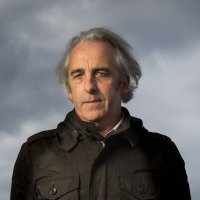 Gregory Day lives on Wadawurrung tabayl in south-west Victoria, Australia. His work has won many awards, including the 2006 Australian Literature Society Gold Medal, the 2011 ABR Elizabeth Jolley Short Story prize, the 2020 Patrick White Award and the 2021 Nature Conservancy Nature Writing Award. Day's novel, A Sand Archive, was shortlisted for the 2019 Miles Franklin Award. He has a new novel, The Bell of the World, out in 2023.
Gregory Day lives on Wadawurrung tabayl in south-west Victoria, Australia. His work has won many awards, including the 2006 Australian Literature Society Gold Medal, the 2011 ABR Elizabeth Jolley Short Story prize, the 2020 Patrick White Award and the 2021 Nature Conservancy Nature Writing Award. Day's novel, A Sand Archive, was shortlisted for the 2019 Miles Franklin Award. He has a new novel, The Bell of the World, out in 2023.
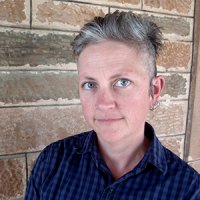 Jennifer Mills is an author, editor and critic living in Kaurna Yerta (Adelaide). Her novel Dyschronia was shortlisted for the Miles Franklin, Aurealis, and Adelaide Festival Awards for Literature in 2019. Mills’s latest book is The Airways, a queer ghost story set in Sydney and Beijing, published in 2021 by Picador.
Jennifer Mills is an author, editor and critic living in Kaurna Yerta (Adelaide). Her novel Dyschronia was shortlisted for the Miles Franklin, Aurealis, and Adelaide Festival Awards for Literature in 2019. Mills’s latest book is The Airways, a queer ghost story set in Sydney and Beijing, published in 2021 by Picador.
Maria Takolander is a Finnish-Australian writer, reviewer, interviewer, and independent scholar. She is the author of four books of poetry, the most recent of which, Trigger Warning (UQP, 2021), won a Victorian Premier’s Literary Award. Maria was also the inaugural winner of the ABR Elizabeth Jolley Short Story Competition and is the author of The Double (And Other Stories) (Text, 2013), which was shortlisted for a Melbourne Prize for Literature. Her website is mariatakolander.com.
2023 Peter Porter Poetry Prize Winner
Dan Disney was named the overall winner of the 2023 Peter Porter Poetry Prize at an online ceremony on 19 January 2023 for his poem ‘periferal, fantasmal’.
The Porter Prize – Australia’s most prestigious poetry competition – is worth a total of $10,000. This year’s judges – Sarah Holland-Batt, Des Cowley and James Jiang – shortlisted five poems by Chris Andrews (NSW ), Chris Arnold (WA), Michelle Cahill (NSW ), Dan Disney (South Korea/Australia), and Raisa Tolchinsky (USA). The shortlisted poems were selected from 1,132 entries sent from thirty-four countries. They appear in the January–February issue of ABR.
Congratulations to Dan Disney and to all the poets shortlisted and longlisted in the 2023 Peter Porter Poetry Prize!
In their report the judges noted:
‘A tour de force of linguistic estrangements, “periferal, fantasmal” excavates the colonial history sedimented in the names that litter the landscape of the Gippsland region in Victoria. Through its comic neologisms and deft calibrations of lyric temporality, the poem replays the sanction for mineral extraction provided by exonymic nomination, reminding us of the scotch-soaked nightmare from which we are still trying to awake'.
On learning of his win, Dan Disney commented:
‘Peter Porter opens his poem “Landscape with Orpheus” with an epigraph from The Magic Flute – “You only live once, let that be enough for you!”. Poems like Porter’s generate not only wonder but also awed awareness (and, for me, a shift thereafter towards ethical, experimental rhetoric). I am dazzled to be in the bright reality of a moment like this. It is an incredible honour to receive a prize bearing the name of such a prodigiously enlivening, humanising poet'.
periferal, fantasmal
by Dan Disney
Residents in the high country town of Benambra are cautiously optimistic it could be on the brink of another mining boom.
The Weekly Times, 4 August 2022
Angus McMillan is lost (again), bushwhacked
in the eucalypt fastnesses of Yaimathang
space, lolling in the dry wainscots
of a thirsting imaginarium, highlander pre-thief
expeditioneering through the land-folds
of community 100 generations deep
(at least) & parlously drunk (again), wandering
pointy guns through the sun-bright climes
later declaimed as alpine, o Angus, you’re lairy
& hair-triggered as a proto-laird, scratching
exonyms into future
placeholders as effacement, chimeless
as your Caledonia Australis (yeah, pipped at the post
by ‘Gipps Land,’ that howling
strzeleckification), & in the fire-crazed hills
Benambra slouches, heat-struck
descendants squinting beside the vanished
(again) Lake Omeo, where ghosts flop
or palely wade, cascading
generations generating cascading generations
as if contagion, feral as syntax reasserting the mere
bunyipdoms of itself, & I read today
a zinc mining crowd
is bee-lining for the outskirts of town
where the brown farms end, & locals already
yipping in full chant, ANOTHER CHANCE FOR
DOOMSAYERS TO DO
EVERYTHING TO THWART ALL CHANCE
OF THIS MINE RE-OPENING, &
McMillan (dumbfounded, non-finding
founder) is out there, still, looping
in stumbles like a repetition
compulsion through the unheimlich
antipodean sublime, syphilitically
occupied in louche preoccupations (namely,
naming the already-named, the-there-&-known,
uttering under white gums in bullet & bulletin
the Quackmungees of his idylling) & while
Benambra’s locals apply next layers
of sunscreen to the books they’re calling history,
hallooing through firestorm, STAND UP
FOR OUR HERITAGE, in the big wet of his oblivions
McMillan is flat out like a bataluk drinking
amid the squatters & Vandemonians,
Iguana Creek, 1865, it is moments before death
& he’s raising one more scotch
(again) in our direction, scowls into the clamouring
sweep of an existential curtain, falling
(as he is, into the old land’s burr,
the only time you’ll hear him speaking here)
BIODH FIOS AGAIBH AIR UR
N-EACHDRAIDH FHÈIN, A BHURRAIDHEAN.1
1 As per Peter Gardner’s book: ‘historians have tended to recognize the priority of McMillan and posterity has left us with all the names that McMillan conferred on the countryside except one – Strzelecki’s “Gipps Land” instead of McMillan’s “Caledonia Australis”.’ See Our Founding Murdering Father: Angus McMillan and the Kurnai Tribe of Gippsland 1839-1865, page 19. Exonymic renaming is one dimension of colonial effacement; in the generations after British annexation, a polyphony of invading languages systematically intersected the colonies’ landscapes, including McMillian’s Scottish Gaelic. The last lines in this text translate from that language, approximately, as ‘idiots, learn your damned history.’ Elsewhere, other capitalised lines are drawn verbatim from the Facebook group ‘Anyone who has lived in Omeo, Benambra, Swifts Creek or Ensay’. ‘Quackmungee’ is the name of one of the vast areas of land controlled by McMillan, who is recorded in the Colony of Victoria’s 1856 census as owning 150,000 acres. In the Gurnaikurnai language, ‘bataluk’ translates to English as ‘lizard’; so total is the genocidal erasure of Indigenous culture that no record exists for the Yaimathang language group’s word for ‘lizard’. In 1865, McMillan died in Gilleo’s Hotel, Iguana Creek.
_____________ Dan Disney's most recent collection of poems, accelerations & inertias, (Vagabond Press 2021), was shortlisted for the Judith Wright Calanthe Award and received the Kenneth Slessor Prize. Together with Matthew Hall, he is the editor of New Directions in Contemporary Australian Poetry (Palgrave 2021). He teaches with the English Department at Sogang University, in Seoul.Further information
The Peter Porter Poetry Prize is one of Australia’s most prestigious poetry awards.
Subscribe to ABR to gain access to this issue online, plus the ABR archive.
Click here for more information about past winners.
We gratefully acknowledge the long-standing support of Morag Fraser AM and Andrew Taylor AM and support in memory of Kate Boyce.
2023 ABR Elizabeth Jolley Short Story Prize
Australian Book Review is delighted to announce that Rowan Heath is the winner of this year’s ABR Elizabeth Jolley Short Story Prize for their story ‘The Mannequin’. They receive $6,000. This year’s prize – worth a total of $12,500 – received 1,200 entries from thirty-eight different countries. Uzma Aslam Khan placed second and receives $4,000 for her story ‘Our Own Fantastic’ , and Winter Bel placed third and receives $2,500 for her story ‘Black Wax’
The 2023 Jolley Prize was judged by Gregory Day, Jennifer Mills, and Maria Takolander.
The shortlisted stories are published in the 2023 August issue (you can purchase single issues here). ABR extends a warm congratulations to Rowan Heath, Uzma Aslam Khan, and Winter Bel as well as to the longlisted entrants (listed below). Thank you to all who entered this year’s prize.
The shortlisted stories are listed below (in alphabetical order by author surname)
‘Black Wax’ by Winter Bel (France/United Kingdom)
‘The Mannequin’ by Rowan Heath (Victoria)
‘Our Own Fantastic’ by Uzma Aslam Khan (United States)
The longlist for the 2023 ABR Elizabeth Jolley Short Story Prize is as follows (in alphabetical order by author surname):
‘and ever more stranger’ by Emily Armanios (Victoria)
‘Black Wax’ by Winter Bel (France/United Kingdom) - shortlisted
‘Backstory’ by Sue Brennan (Japan)
‘The Mannequin’ by Rowan Heath (Victoria) - shortlisted
‘Our Own Fantastic’ by Uzma Aslam Khan (United States) - shortlisted
‘Older, Younger’ by Kira McPherson (England)
‘Fatal attraction’ by Fope Ojo (Netherlands)
‘Happy At Work’ by Ellen Rodger (NSW)
More information about the longlisted authors can be found below.
The 2023 ABR Elizabeth Jolley Short Story Prize Longlist
‘and ever more stranger’ by Emily Armanios
Emily Armanios is a twenty-three-year-old Greek-Egyptian poet currently writing and living on unceded Wurundjeri land, in beautiful Naarm. She spends her time being awestruck by the terror/tenderness of the exquisite world, in which you'll often find her writing ‘poetry or else’.
‘Black Wax’ by Winter Bel
Winter Bel is a writer of literary fiction and poetry. Born in England, she now splits time between Paris and Los Angeles. She is presently polishing for publication her début novel After The Angels, as well as her short story collection Hard Place Rock, from which story ‘Black Wax’ is taken. Her website is winterbel.info.
‘Backstory’ by Sue Brennan
Sue Brennan is an Australian writer with stories published in Australia in ACE - Contemporary Stories by Emerging Writers, Meniscus, Meanjin, and in the USA in The Peauxdunque Review, Big City Lit and The Blue Mountain Review. In 2022, she was the winner of the New Feathers Anthology prose award. She can be found at www.suebrennan.net.
‘The Mannequin’ by Rowan Heath
Rowan Heath is a writer, editor and LARPer living on Wurundjeri land. Their creative work has appeared in In Flux: Trans and Gender Diverse Reflections and Imaginings, Monstrous Appetites, Perspektif, Verge and Antithesis. Their fiction will be published in Strangely Enough, an ASSF anthology, in late 2023. They have edited for publications such as Farrago, Inkspot and CAMP. They currently work in the higher education sector.
‘Our Own Fantastic’ by Uzma Aslam Khan
Uzma Aslam Khan is the author of five internationally acclaimed novels. These include Trespassing, nominated for a 2003 Commonwealth Prize; The Geometry of God, a Kirkus Reviews’ Best Book of 2009; Thinner Than Skin, nominated for the Man Asian Literary Prize and DSC Prize for South Asian Literature. Khan’s new novel, The Miraculous True History of Nomi Ali, was a New York Times’ Best Historical Fiction 2022. It won the Karachi Literature Festival-Getz Pharma Fiction Prize, and has been longlisted for the Massachusetts Book Awards for 2023. Born in Pakistan and now residing in the United States, Khan has also lived in the Philippines, Japan, England, Morocco, and Oceania. Her website is https://www.uzmaaslamkhan.com
‘Older, Younger’ by Kira McPherson
Kira McPherson is the author of Higher Education, published by Ultimo Press (2023). Her short stories have been published in Westerly, the Stockholm Review of Literature, and the London Short Story Prize Anthology, and she is an associate editor of Short Fiction Journal. She grew up in Perth, Western Australia and lives in London.
‘Fatal attraction' by Fope Ojo
Fope Ojo is a writer from Lagos, Nigeria, who currently lives between Amsterdam and Lagos. She is an alumni of Purple Hibiscus Workshop in Awka, Anambra 2020, Sonic Acts critical writing workshop in Amsterdam, 2021 and the Iceland Writers Retreat, 2023. Some of her work has appeared in Overland, Necessary Fiction, Spread Magazine, Cherry Tree, Ynaija, Irin Journal, Sleek Magazine, Native to name a few. Two of her short stories have been nominated for the Best of Net category in Fiction, and the Pushcart Prize. Her short fiction was also longlisted for the 2020 Commonwealth short story prize.
‘Happy At Work’ by Ellen Rodger
Ellen Rodger’s novella The Girls’ Room was published in Love & Desire, Four Modern Australian Novellas. Her writing has also appeared in The Best Australian Stories and The Age. Her recent short fiction has been nominated for the Newcastle Short Story Award, the Albury City Short Story Award, and the Alan Marshall Short Story Award. Ellen has an MA (Creative Writing) from Western Sydney University.
Please sign up to our free 'Prizes and Programs' newsletter for more information about the 2023 ABR Elizabeth Jolley Short Story Prize.
ABR warmly acknowledges the generous support of ABR Patron Ian Dickson AM, who makes the Jolley Prize possible in this lucrative form.
ABR Cultural Tours | Vienna 2023
ABR is delighted to present regular cultural tours in partnership with Academy Travel.
ABR Vienna Tour 2023
13–24 October 2023
Following on from our successful pre-pandamic international tours, ABR and Academy Travel hosted a cultural tour to Vienna in late 2023.
Vienna is city of palaces and gardens, museums and music, tradition and modernity. For more than four hundred years it was the jewel in the glittering imperial crown of the Hapsburgs.
The city’s wealth, at its zenith, is illustrated in its magnificent architecture, extraordinary collections of fine and decorative art, and a musical legacy that includes some of the greatest names of classical music. As the empire waned, the city embraced modernity with the revolutionary art and architecture of the Secessionists and Sigmund Freud’s work in psychoanalysis.
Our 12-day residential tour, led by art historian Christopher Menz and ABR Editor Peter Rose, explored the city in depth, following in the footsteps of Mozart and Beethoven, Otto Wagner and Gustav Klimt, and took us into the surrounding countryside as we cruised the mighty Danube to the beautiful Wachau Valley and down to Bratislava.
Of course, in this city of music, our tour also included best possible seats to four selected performances.
ABR Cultural Tours | Adelaide Festival 2023
ABR is delighted to present regular cultural tours in partnership with Academy Travel.
ABR Adelaide Festival Tour 2023
3–11 March 2023
Following on from our successful 2022 Adelaide Festival Tour, ABR and Academy Travel hosted another cultural tour to Adelaide to coincide with Adelaide Writers’ Week and the best of the 2023 Adelaide Festival.
Inaugurated in 1960, Writers’ Week and the Festival are unmissable highlights on Australia’s cultural calendar. Through ABR guests enjoyed special access to Writers’ Week events and some of the featured writers. Academy Travel is the only travel company to be a partner sponsor of the Adelaide Festival, guaranteeing access to excellent tickets and the opportunity to meet artists and directors.
There was also time to enjoy the collection and Festival exhibition at the Art Gallery of South Australia and trips to the Penfolds Magill Estate and the Adelaide Hills. Accommodation was at the Intercontinental Hotel, adjacent to Writers’ Week and Festival venues.
This was a nine-day tour and the group was limited to just twenty participants.
2023 Calibre Essay Prize Judges
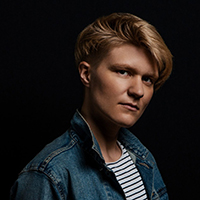 Yves Rees is a Lecturer in History at La Trobe University and author of All About Yves: Notes from a transition (Allen & Unwin 2021). Their essay ‘Reading the Mess Backwards’ won the 2020 Calibre Essay Prize. A co-host of the history podcast Archive Fever, Yves is a regular contributor to ABC radio and The Conversation, and their work has appeared in ABR, Overland, Guardian Australia, Inside Story, and Archer.
Yves Rees is a Lecturer in History at La Trobe University and author of All About Yves: Notes from a transition (Allen & Unwin 2021). Their essay ‘Reading the Mess Backwards’ won the 2020 Calibre Essay Prize. A co-host of the history podcast Archive Fever, Yves is a regular contributor to ABC radio and The Conversation, and their work has appeared in ABR, Overland, Guardian Australia, Inside Story, and Archer.
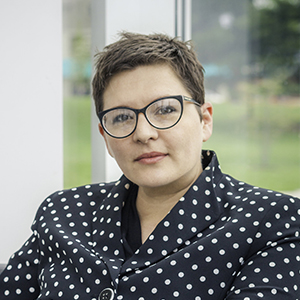 Beejay Silcox is an Australian writer and critic, and was the ABR Fortieth Birthday Fellow. Her literary criticism and cultural commentary appear in national arts publications such as ABR and Times Literary Supplement. Her award-winning short stories have been published at home and abroad.
Beejay Silcox is an Australian writer and critic, and was the ABR Fortieth Birthday Fellow. Her literary criticism and cultural commentary appear in national arts publications such as ABR and Times Literary Supplement. Her award-winning short stories have been published at home and abroad.
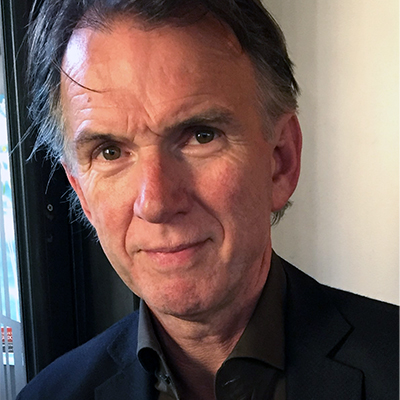 Peter Rose has been Editor of Australian Book Review since 2001. Previously he was a publisher at Oxford University Press. His reviews and essays have appeared mostly in ABR. He has published six books of poetry, two novels, and a family memoir, Rose Boys (Text Publishing), which won the 2003 National Biography Award.
Peter Rose has been Editor of Australian Book Review since 2001. Previously he was a publisher at Oxford University Press. His reviews and essays have appeared mostly in ABR. He has published six books of poetry, two novels, and a family memoir, Rose Boys (Text Publishing), which won the 2003 National Biography Award.
Tracy Ellis wins the 2022 ABR Elizabeth Jolley Short Story Prize
Australian Book Review is delighted to announce that Tracy Ellis is the winner of this year’s ABR Elizabeth Jolley Short Story Prize for her story ‘Natural Wonder’. She receives $6,000. This year’s prize – worth a total of $12,500 – received 1,338 entries from thirty-six different countries. Nina Cullen placed second and receives $4,000 for her story ‘Dog Park’, and C.J. Garrow placed third and receives $2,500 for his story ‘Whale Fall’.
The 2022 Jolley Prize was judged by Amy Baillieu, Melinda Harvey, and John Kinsella. The judges’ report, as well as the full longlist, can be found below.
Each of the shortlisted stories are published in the 2022 August issue (purchase single issues here). ABR extends a warm congratulations to Tracy Ellis, Nina Cullen, and C.J. Garrow, as well as to the longlisted entrants. Thank you to all who entered this year’s prize. We look forward to receiving your entries next year.
Winner
Tracy Ellis
for ‘Natural Wonder’
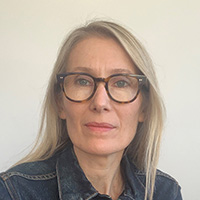 Tracy Ellis lives in Sydney and works as an editor in digital and print media. She has a Master’s in Creative Writing from UTS and was previously longlisted for ABR’s Calibre Essay Prize.
Tracy Ellis lives in Sydney and works as an editor in digital and print media. She has a Master’s in Creative Writing from UTS and was previously longlisted for ABR’s Calibre Essay Prize.
Second
Nina Cullen
for ‘Dog Park’
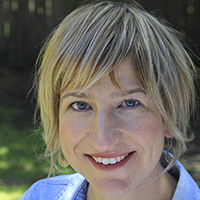 Nina Cullen is a Newcastle-based writer whose work has appeared in various Australian and international publications. She has just finished a collection of linked short stories and is working on a novel.
Nina Cullen is a Newcastle-based writer whose work has appeared in various Australian and international publications. She has just finished a collection of linked short stories and is working on a novel.
Third
C.J. Garrow
for ‘Whale Fall’
 C.J. Garrow is a Melbourne writer whose fiction has been shortlisted for various international prizes. His story ‘Egg Timer’ was shortlisted in the 2020 Jolley Prize.
C.J. Garrow is a Melbourne writer whose fiction has been shortlisted for various international prizes. His story ‘Egg Timer’ was shortlisted in the 2020 Jolley Prize.
Full longlist
‘by the hour’ by Diana Clarke (New Zealand)
‘Dog Park’ by Nina Cullen (NSW) - shortlisted
‘Case Notes’ by Sonja Dechian (Vic.)
‘Natural Wonder’ by Tracy Ellis (NSW) - shortlisted
‘Whale Fall’ by C.J. Garrow (Vic.) - shortlisted
‘And Then There Is Pink’ by Madison Griffiths (Vic.)
‘Glads’ by Susan Hettinger (United States)
‘half-moons filled with jam’ by Andy Kovacic (NSW)
‘Born for You’ by Magdalena McGuire (Vic.)
‘The Mend’ by Bruce Meyer (Canada)
‘Blowing Up’ by Alec Patrić (Vic.)
‘Not-John’ by Jonathan Ricketson (Vic.)
‘Zamek’ by Alex Skovron (Vic.)
‘human material’ by Tracey Slaughter (New Zealand)
Judges’ comments
In ‘Natural Wonder’, the narrator watches over three boys – her son and his two cousins – as they spend the first days of a new year playing at a beach on Sydney harbour. This story of children swimming and fencing with toy lightsabers on the sand has a gently melancholic undertow: it emerges that the cousins have experienced the recent trauma of losing their mother. The narrator feels a strong urge to protect and comfort her nephews but she is also drawn to ideas of escape and freedom. The story is remarkable for its quietness, acknowledgement of knotty feelings, and the room it makes for small miracles.
In the tense and atmospheric story ‘Dog Park’, Georgie takes her young son Max on a midday visit to the park where she watches from a shaded bench while he plays. Georgie’s protective love for her son infuses the story even as her desperate longing to shield him from potential pain or humiliation leads to growing tensions and an unsettling confrontation. ‘Dog Park’ is a tender examination of the evolving relationship between an anxious mother and her growing child that is filled with nuanced observations and telling details. The complex interactions between the characters in this story are particularly convincing.
The bullying of Bernard Tusk at a school for boys ‘of shallow prospects’ is conveyed in a wry, uncanny, and almost defamiliarising way in ‘Whale Fall’, which uses the beaching of a whale carcass as a metaphor for pointless death. As an implicated but also threatened observer, the narrator takes us through the destruction of Tusk who, like all the younger boys, vaguely seeks ‘cool’, but can’t attain it. The triggering complicity of the narrator is both strangely self-exonerating and self-accusatory as he tries to figure out his role between collusion and empathy. The story skilfully examines a fraught complicity and guilt.
ABR warmly acknowledges the generous support of ABR Patron Ian Dickson, who makes the Jolley Prize possible in this lucrative form. We congratulate all the longlisted and shortlisted authors.
Previous winners
Subscribers to ABR can read previous prize-winning stories to the Jolley Prize. To read these stories, click here.
If you aren't a subscriber, digital subscriptions begin at only $10 per month. Click here to become an ABR subscriber.
2023 Porter Prize Judges
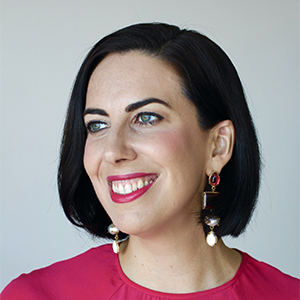 Sarah Holland-Batt is the author of three volumes of poetry, most recently The Jaguar (UQP, 2022), and a book of essays, Fishing for Lightning: The spark of poetry (UQP, 2021). She has received a number of honours, including the Prime Minister’s Literary Award for Poetry, a Sydney Myer Creative Fellowship, and the Judy Harris Writer in Residence Fellowship at the University of Sydney’s Charles Perkins Centre. Sarah is Professor of Creative Writing at QUT and Chair of the ABR Board.
Sarah Holland-Batt is the author of three volumes of poetry, most recently The Jaguar (UQP, 2022), and a book of essays, Fishing for Lightning: The spark of poetry (UQP, 2021). She has received a number of honours, including the Prime Minister’s Literary Award for Poetry, a Sydney Myer Creative Fellowship, and the Judy Harris Writer in Residence Fellowship at the University of Sydney’s Charles Perkins Centre. Sarah is Professor of Creative Writing at QUT and Chair of the ABR Board.
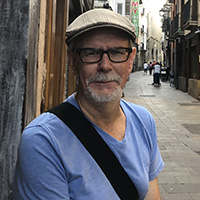 Des Cowley is Principal Librarian, History of the Book and Arts, at State Library Victoria. He is co-author of The World of the Book (MUP, 2007), and co-editor of Creating and Collecting: Artists’ books in Australia (2015). He recently edited the Collected Prose Poems of Gary Catalano and is editor of the Red Letter series of poetry chapbooks, published by Life Before Man press.
Des Cowley is Principal Librarian, History of the Book and Arts, at State Library Victoria. He is co-author of The World of the Book (MUP, 2007), and co-editor of Creating and Collecting: Artists’ books in Australia (2015). He recently edited the Collected Prose Poems of Gary Catalano and is editor of the Red Letter series of poetry chapbooks, published by Life Before Man press.
 James Jiang is Assistant Editor at ABR. He was awarded his PhD in English from the University of Cambridge and taught for a number of years at the University of Melbourne. He has written for a variety of publications in Australia and abroad on poetry, critical culture, diasporic literature, and sport.
James Jiang is Assistant Editor at ABR. He was awarded his PhD in English from the University of Cambridge and taught for a number of years at the University of Melbourne. He has written for a variety of publications in Australia and abroad on poetry, critical culture, diasporic literature, and sport.


